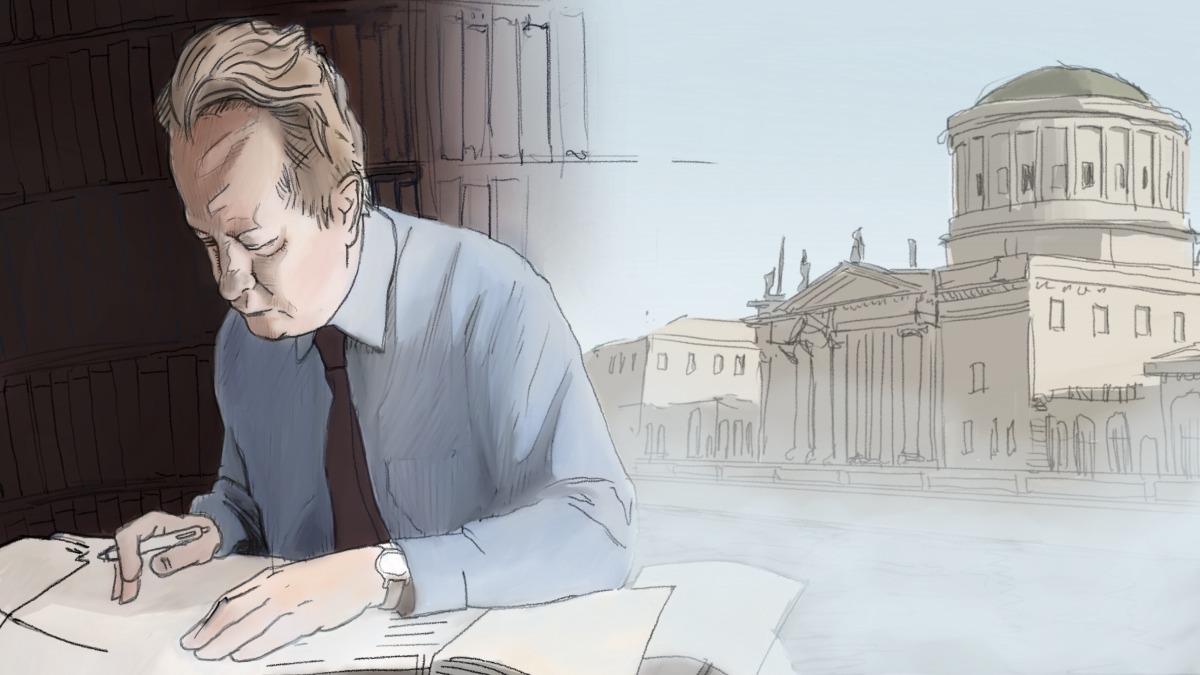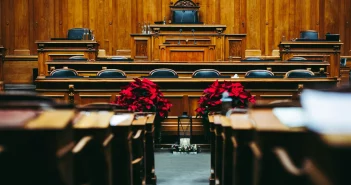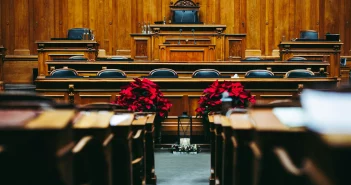You enter here a taut quintet
Where theorists can shift or shape
How we make sense of market flow;
How men and how it’s mostly men,
Explain the ways our commerce works.
No Flash of insight, more a slow
Encroachment that in turn creates
Our understanding how by stealth
New certainties of common sense
Construe the weave of life and wealth.
Micheal O’Siadhail, The Five Quintets, Dealing, Canto 1, Mechanisms, p.67.
‘Is what is written on a piece of paper worth the paper it’s written on?’ was the simple question posed by the Master of the High Court, Edmund Honohan, at the beginning of a recent Decision, delivered on the 9th of February, 2022 in the case AIB PLC vs Gary Lennon.
Curiously, unlike other Decisions, this is still unavailable on the court’s website, and certainly didn’t make many headlines; although an article in the Irish Times provides a simplified account.
Could this be because of its seemingly complex legal arguments; or perhaps because it reveals too much about how banks and Vulture funds are taking advantage of Ireland’s permissive legal environment?
The Decision relates to a case in which AIB were claiming payment of an outstanding debt, from Mr Lennon. However, Mr Lennon counterclaimed that AIB had not furnished the necessary evidence to the Court entitling them to substantiate or prove the claim.
The first thing that a bank or vulture fund needs to do when claiming payment of an outstanding debt or repossess a house, is to prove, with supporting hard (’probatory’) evidence, that it owns the rights to that property or debt.
Unsurprisingly, this often proves a difficult exercise after the individual debts are bundled up (securitised) and sold on the international market via ever more and more complex financial structures; Section 110 companies, SPVs, Subsidiaries of subsidiaries. These structures allow our banking system to handle non-performing loans, but also to facilitate a lot more capital outflow, often in the form of un-taxed profits.
AIB PLC vs Gary Lennon
In this Decision (which to be clear is not a judgment) by the Master of the High Court we find, apart from the case in question, some serious warnings in relation to the use in courts of the Civil Law and Criminal Law (Miscellaneous Provisions) Act 2020, which now allows business documents, previously considered mere hearsay – out of court statements that are generally inadmissible in proceedings – as evidence in financial cases.
Simply put, when it now comes to such cases, it has become acceptable for a bank to adduce hearsay evidence, laying claim to a property or debt, and for this to be accepted in good faith.
Thus, according to Honohan’s Decision, creating a situation where:
In banking cases, the plaintiff has deep pockets and a reputable firm of lawyers to present the case. Is there any risk of an overarching judicial prejudice in the plaintiff’s favour? The lay litigant thinks there might be.
We cannot overlook, either, the alarming phenomenon of banks telling the courts to not even think of requiring their witnesses to come to court and submit to cross examination. A belief that summary judgment is there for the asking?
Confusion around what actually constitutes acceptable evidence and the institution of legal procedures that overwhelmingly favour big financial institutions over ordinary citizens, could be yet another channel for regulatory capture.
In a detailed investigative report @danieleidiniph1 argues that the Financial Services and Pensions Ombudsman is being undermined by a subtle process of regulatory capture.https://t.co/YaT4iPBow5@broadsheet_ie @VillageMagIRE @BowesChay @WhistleIRL @caulmick #howirelandworks
— CassandraVoices (@VoicesCassandra) January 29, 2022
There is currently €16 billion worth of loans on this roulette table in Ireland, all of which are in some way securitised and being traded as we speak.
With politicians and the media are now furiously engaging with more accessible aspects of the housing crisis, like simplistic explanations of supply and demand, and the necessity for foreign investment, it is also important to look into how the law has been altered to give more leeway to banks and Vulture funds.
Citizens, as much as the financial institutions, should demand a justice system that satisfies basic criteria of fairness and impartiality. This should make it realistic for any citizen to challenge a bank or Vulture fund.
This ought to be regardless of how deep, shallow, or broken, your pockets are.
“Wolf of Golfgate” Country
Readers may be familiar with a movie about the 2008 subprime market collapse called ‘The Big Short.‘ It is constellated with explainers like Margot Robby in a bubble bath illustrating subprime mortgage backed securities, and chef Anthony Bourdain making a fish soup with left over mortgages with low values to explain securitisation.
The financial collapse, as described in the movie, actually happened, after some twenty years of head spinning financial innovations. In that period, investment banking went from being a relatively boring and stale career into what may be referred to as the “Wolf of Wall Street” life.
Fast forward about a decade, banks get bailed out, while austerity cripples the most vulnerable. 2013 is the year that Reits and Cuckoo Funds came to Ireland and begin to dictate the kind of supply of housing the Irish should have. This has led to the artificial inflation of prices in the housing market.
In the Land of the Wolf of Golfgate there are thousands upon thousands of loans being bundled together, as we speak, and traded around the world like you would soya beans or any other asset. The reality on the ground is that these are mostly homes that many of us are living in, or should be.
Securitisation and other complex financial structures to recover outstanding debts, are not always a bad practice and are actually an essential tool to limit banks’ exposure to risk; thereby ensuring a country’s financial stability.
But if financial predators go unchecked, especially when it comes to housing, and the courts are not up to speed with the financial innovations involved in the cases that it encounters, the country offers fertile ground for those financial entities, and their money, to become overwhelmingly more powerful than the ordinary citizen.
As Edmund Honohan warns in his recent Decision:
Courts are not yet up to speed with the byzantine multiple-player transactions in the capital markets. Even the Financial Times, in a full page ad in the edition of 27/28 November 2021 warned “Fakery is now everywhere, Regulation has failed.” Our courts are still exploring the mechanics of securitisation. Wait till we start getting “synthetic” securitisation! And as for encryption and blockchain software, who will interpret the “hash”? (77)
Moreover, in this often unbalanced relationship between the judiciary and high finance, the use value of a house is deemed to be superseded by its exchange value.
Another explanation is that unequal access to quality legal representation creates a great disparity between individual citizens and these institutions when it comes to access to housing stock and credit.
This is an issue for which a petition has recently been launched to address a problem that could affect over 200,000 people. It is called ‘Legal Support for possession proceedings on homes.‘
“There are currently thousands of citizens battling to save their family home in Irish Courts, not represented by any legal team.” Legal Support for possession proceedings on homes | Uplift https://t.co/Hz99SW6K8Y
— danieleidiniphoto (@danieleidiniph1) February 11, 2022
Extra Virgin Political Oil
For the above to happen as smoothly and quietly as possible, you need lubricant in the machinery, which normally comes in the form of extra virgin political oil. This speed up things and make sure the machinery of claims and repossessions works like clockwork, and without any unnecessary impediments.
As we previously mentioned, one of the widespread practices for banks, Vulture funds and Cuckoo funds, to lubricate the passage of cases, is to present hearsay evidence, something somebody says out of court, and for it be accepted in good faith: This practice now seems even easier despite ad hoc clarifications in the Civil Law and Criminal Law (Miscellaneous Provisions) Act 2020.
The Act was passed shortly after the case, Promontoria (Aran) vs Burns, wherein Promontoria, a notorious investment fund, often referred to as a Vulture, (I didn’t say it, it’s hearsay) was barred from presenting business records in evidence, and therefore lost the case.
At that point most people in the country were absorbed with dealing with a pandemic, and shortly afterwards there was the Golfgate Scandal, which included Brian Hayes, CEO, Banking & Payments Federation of Ireland; a prime examples of Ireland’s revolving door between politics and the private banking sector.
With an urgency rarely seen for other problems, such as the homeless and healthcare crises, the Act was fast-tracked through the Oireachtas.
Here is how Minister of Justice and Equality, Deputy Helen McEntee introduced the Act in the Dáil debate on the July 30 2020:
The commission’s report recommends that records compiled in the course of business, because they are generally reliable, should be admissible in civil proceedings as an inclusionary exception to the hearsay rule, subject to the safeguards that have been set out in the Bill. Separately, the Court of Appeal was called in a recent case, Promontoria (Aran) Ltd. v. Burns, to interpret and apply the law as it currently stands regarding the admissibility of business records in civil cases. Both judgments delivered by the court last April were clearly of the view that the law in this area needs to be updated by legislative reform. More recently, the Judiciary has specifically identified legislative reform of the civil law rules on business records to my Department as among the most urgent priorities for it to be able to advance cases fairly and without unnecessary delays and costs to all parties concerned.
It introduced the possibility, or rather encourages the use of business documents as evidence, even if they are mere hearsay, although it does allow the other party to challenge the validity of such evidence.
But best of luck if you are a lay litigant, without legal aid and in a precarious financial situation, attempting to challenge a skilled team of lawyers pitted against you, by the bank or Vulture fund in question, full of good faith.
The inherent risk to private citizens posed by the the misinterpretation of this new law in front of the disarming power of the law firms which the banks rely on, was articulated in an earlier decision by Ed Honohan, AIB PLC vs McGrane, on the 9th June 2021, under the heading EU Charter of Fundamental Rights:
Given that at least some of these issues – contract terms, debt restructure etc. – are now the subject of EU Directives, the courts will have to satisfy themselves, under Article 47 of the Charter, that the defendants are given “effective access to justice” and, for cases of complexity of the sort above described, that “Legal Aid shall be made available to those who lack sufficient resources insofar as such aid is necessary.
Most litigants in person just show up in court on the day the case is listed and it may then be too late to make up for lost ground. The chances of framing and corroborating a second bite at the cherry, on Appeal, may be vanishingly small, even if they manage not to miss the ten-day deadline for an Appeal (which many do).
Writing in Prospect Magazine in 2018, David Neuberger, former President of the UK Supreme Court, said: “Without the rule of law society becomes unjust, violent and poor. It is of fundamental importance that courts are open and accessible.
“Accessibility means that people with grievances and those being sued must get access to legal advice and to courts. It is an affront to justice if people cannot understand or enforce their rights.
It’s always a difficult task to communicate to a wider audience how the intricacies of the law, full of carefully crafted language, are at play in underpinning how our society, and economy operates.
Especially when true complexity arises, actual trials are needed and the public needs to know it can trust their judicial public servants “the adults in the room”, in the making of these key decisions.
The thicker the blanket of legal fog, the more political “good intentions” and “good faith” are but a faded image of what people’s actual needs are.
This leads to a society dominated by cynicism, unable to envisage any change, and politically impotent.
Feature Image by Gareth Curtis




